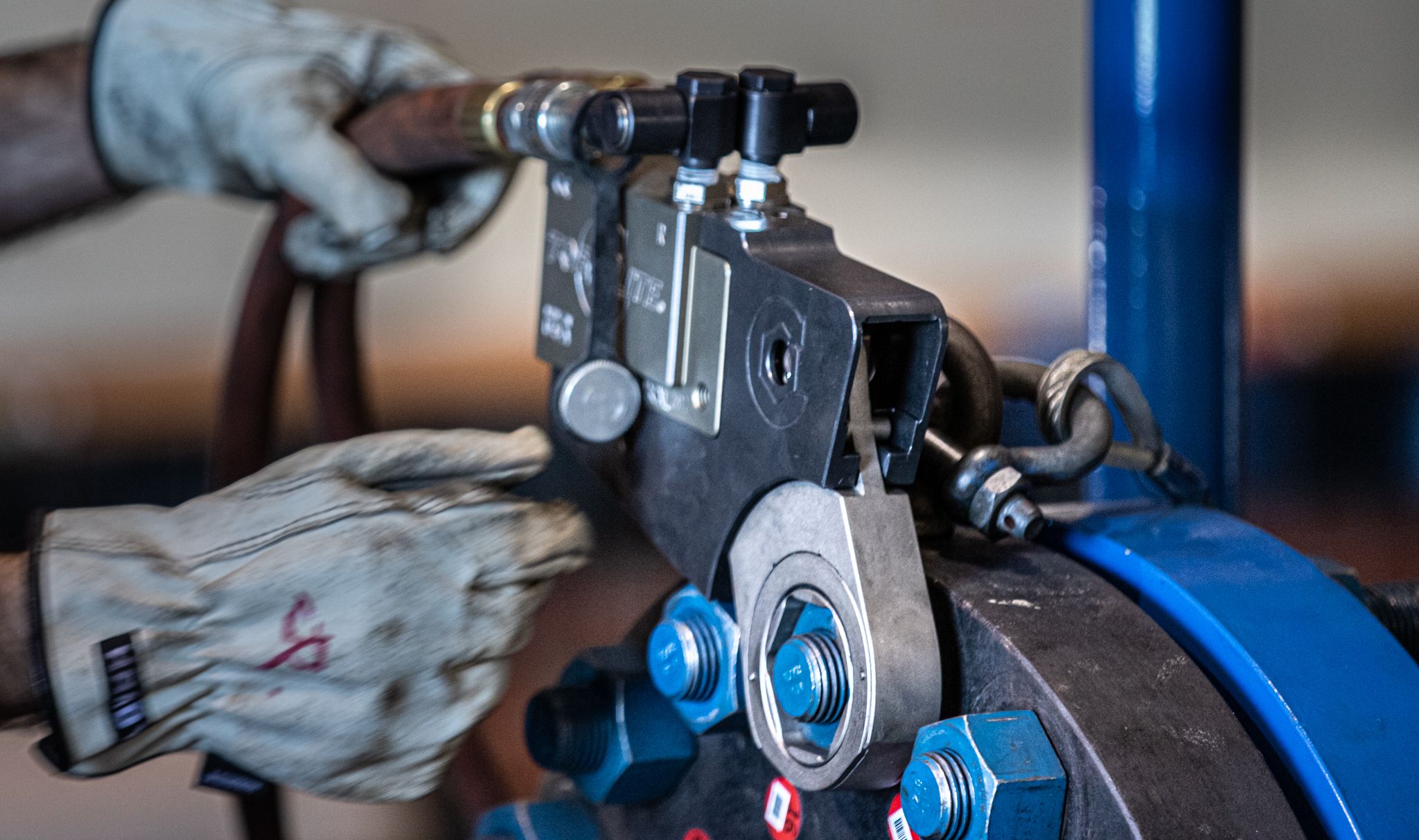Dealing with bolts that keep coming loose can be a real headache, causing disruptions and safety concerns in various applications. The causes of bolt loosening can range from vibration and thermal cycling to inadequate initial tightening.
This persistent issue not only leads to compromised structural integrity but also poses risks to equipment reliability and overall safety.
Today, we’ll dive into the common causes, understand the effects it can have on different systems, and explore effective prevention measures to keep bolts securely in place.
Bolt Loosening Causes
#1 Over/Under Tightening:
Balancing the right tightness is crucial when dealing with bolts. Over-tightening, though it might feel like the secure choice, exerts excessive force on clamps, risking the stripping of the bolt. Picture it like an overtightened lid—it’s snug, but the strain is building.
Conversely, under-tightened bolts start off on shaky ground, compromising the clamp force that should keep the joint secure. It’s like a loose shoelace; it might hold for a while, but the potential for a breakdown is lurking as the sections of the bolt play the sideways slip game.
Achieving that right balance in tightness is the key to a robust and durable bolted joint.
#2 Shock and Vibration
Imagine your perfectly tightened bolt facing the world of constant movement. Even if you’ve nailed the tightening part, external forces can still throw a wrench in the works. Machines with regular motion, like wind turbines and generators, can deliver mechanical shocks to bolted joints, prompting threads to play a slippery game.
And then there’s vibration—frequent tremors that might seem harmless but can unravel the stability of bolted joints. Picture it as a subtle dance between the bolt and the joint thread; too much vibration, and the friction weakens, paving the way for the bolt to casually unwind.
#3 Gasket Creep
Gasket creep is also a significant factor. In numerous bolted joints, a slim, elastic gasket serves as a spring between the bolt head and the joint’s surface. This resilient gasket counters the pressure exerted by the bolt and the joint face.
Unfortunately, when exposed to heat or corrosive chemicals, these gaskets can lose their springiness. This loss of elasticity can result in a reduction of the crucial clamp force needed for a secure joint.
#4 Differential Thermal Expansion
When bolts and joints have different materials, things get a bit tricky. Especially when they expand or contract at different rates due to temperature changes or regular industrial use. This mismatch can make bolts slowly come loose over time.
#5 Corrosion
Bolts, just like any metal, can be affected by corrosion over time. Corrosion weakens the bolts, making them more likely to come loose. This process speeds up in places with moisture, like outdoors or near water. Rust not only makes the bolt weaker but also changes its size, causing it to loosen slowly.
Effects of Bolts Loosening
Bolts become not-so-secret troublemakers when they start to loosen.
Picture it like this: the unsung guardians of our buildings and machinery suddenly take a step back. What happens next?
Well, let’s break it down.
#1 Structural Instability
The aftermath of bolt loosening brings an unsettling compromise to structural stability. Imagine bolts, once steadfast anchors, losing their grip. The consequence? Connected components start to teeter and shift.
This instability isn’t just a minor hiccup – it weakens the entire structure, laying the groundwork for potential catastrophic failures.
#2 Equipment Malfunctioning
In the realm of machinery and mechanical systems, the repercussions of bolt loosening extend beyond mere inconvenience. Bolts coming loose lead to misalignment and, ultimately, malfunction.
It’s not just about one part misbehaving; the issue can snowball into a domino effect, affecting the performance of the entire system.
#3 Safety Hazards
Loose bolts pose serious safety risks, especially in critical structures like bridges or high-rise buildings. The potential for bolts to disengage under load creates a hazardous situation for occupants and bystanders.
Tightened bolts aren’t just about structure; they’re about security.
#4 Escalating Maintenance Costs
Addressing bolt loosening aftermath isn’t just about tightening or replacing bolts; it requires a costly comprehensive overhaul to fix the damages incurred during the unraveling, leading to increased maintenance costs.
How To Prevent Bolt Loosening?
The key to preventing bolt loosening lies in a strategic combination of good design, meticulous installation, and the implementation of proven preventative methods.
Here are some of our tips:
#1 Proper Torque Application
The cornerstone of preventive measures against bolt loosening is the proper application of torque during installation. Tightening bolts to specified torque values is fundamental, demanding strict adherence to manufacturer guidelines and the use of calibrated torque tools.
#2 Use Anti-Vibration Washers
Anti-vibration washers are your silent guardians. Crafted to absorb vibrational energy, these buffers add an extra layer of defense, ensuring a stable and secure connection.
#3 Corrosion Protection
Shielding bolts from the relentless march of rust is akin to outfitting them with a protective raincoat. Opting for materials or coatings resistant to corrosion becomes crucial, particularly in outdoor or moisture-laden environments.
#4 Adhesives
Adhesives like liquid, heated thermoplastic coatings, or solid patches are effective in preventing bolt loosening. However, there’s a trade-off – while they offer a strong defense, disassembling the joint becomes more challenging. It highlights the need for careful consideration and strategic adhesive application based on the joint’s specific needs and future maintenance requirements.
Conclusion
In the battle against bolt loosening, understanding the causes, effects, and preventive measures is paramount for ensuring the longevity and safety of our structures and machinery.
TorqLite stands as your one-stop solution provider, offering a range of advanced tools such as hydraulic torque wrenches, tensioners, flange spreaders, pneumatic multipliers, and more.
Don’t let loose bolts compromise your operations—empower yourself with our top-notch bolting tools for a secure and resilient future.

